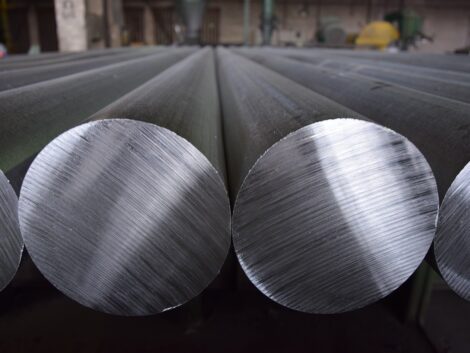Aluminum Association put pressure on Biden Administration
The Aluminum Association, which represents the majority of aluminium production and jobs in the United States, called on the Biden administration to redouble efforts to promote strong trade enforcement and eliminate massive industrial subsidies that drive excess capacity in the Chinese aluminium sector as it moves ahead on future negotiations around Section 232 tariffs.
During a meeting with US Trade Representative Katherine Tai, the association also asked the administration to push the European Commission to reimplement recently suspended tariffs on unfairly dumped Chinese flat-rolled aluminium.
In a joint statement announcing the replacement of Section 232 tariffs on aluminium imports from the European Union with a tariff rate quota (TRQ), the parties committed to closely monitor trade flows and find “solutions and address non-market excess capacity in the global steel and aluminium sectors.”
“While the Aluminum Association continues to disagree with a TRQ as a replacement for Section 232 tariffs, we were pleased to see the administration commit to tackling unfair trade together with our allies.
“One easy way to demonstrate this commitment would be for the European Commission to reimplement tariffs on unfairly traded Chinese aluminium,” said Ryan Olsen, vice president of market growth & development at the Aluminum Association.
“Fully 97 percent of the more than 166,000 direct aluminium industry jobs in the U.S. are in mid-and-downstream production and processing.
“These American workers depend on an integrated supply chain that allows for fair trade among allies to meet demand and support growth.
And while we fully support efforts to spur meaningful investment in domestic primary aluminium production, it is simply a fact that we cannot continue to invest in US manufacturing and grow American aluminium jobs without open but rules-based trade with other market-oriented economies.”
The association added that the Biden administration should renew its focus on strong trade monitoring and enforcement; work with like-minded trading partners to address unfair Chinese trade practices; and continue making reforms to the Section 232 product exclusion process to avoid market manipulation.
It called for the administration to pursue policies that increase the availability of recycled aluminium as inputs which will support increased US aluminium production and domestic job growth along with significant environmental benefits.
Finally, the Aluminium Association want the administration should facilitate industrial access to affordable and reliable energy – the best way to spur sustainable investment in U.S. primary aluminium production and support international climate goals.
“Policymakers need to recognise the unique position of the US aluminium industry in the global marketplace – including key differences between steel and aluminium. We need trade strategies that work for all US aluminium companies rather than a few select market segments,” added Olsen.
“That’s the path to sustainable growth and investment for the domestic industry, which makes some of the cleanest aluminium and aluminium products in the world.”








